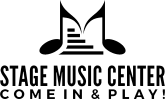Everything You Want to Know About Music Therapy
March is not just about the blossoming flowers and warmer days. It is also a month where the air itself hums with the therapeutic power of music. Yes, it is Music Therapy Month, where the beats are not just for your ears but also your well-being.
Music therapy is like your mood's best friend, helping you feel great! It's not just about playing instruments or singing high notes but also about using music in a fun way to make you smile and feel good.
The best part? You don't need a music degree to vibe with the beats. Everyone can benefit from the healing power of music from infants to seniors.
As we celebrate Music Therapy Month, let's explore everything you want to know about music therapy.
What is Music Therapy?
It’s no secret that music has always been a big part of our lives. From calming babies to helping teens find themselves, music has always been there for us.
So, what is music therapy, you ask?
Music can help you feel better mentally and emotionally.
Well, it is a way to use music to help you feel better mentally and emotionally. It can involve playing and creating music, singing, dancing, or even just listening and talking about music.
The best part? It is all-inclusive. Anyone can do it, no matter your age or musical skills! It's a fun and powerful way to heal yourself from the inside.
History of Music Therapy
Music therapy has been around for ages. Some say Aristotle was the first to connect music and healing, but the connection between medicine and music actually took off in 1789.
Doctors like Edward Atlee and Samuel Matthews started using music to help patients in the early 1800s, setting the stage for the thriving practice we see today.
The Healing Power of Frequencies
Nature is like a calming DJ, playing a special kind of music with frequencies called Hertz. These are like the notes that make up music, but even cooler! One special frequency, 528 Hz, is like a friend to our hearts, spreading happiness, love, and kindness.
Imagine this: the peacefulness of nature, mixed with these special musical frequencies, creating a healing experience like listening to music. When we're feeling down, we can find a quiet place in nature to relax and let the good feelings wash over us.
So, join the nature jam, let the calming sounds take you away, and feel great where nature and these special frequencies meet!
Benefits of Music Therapy
Music therapy can help you in many ways, just like different melodies have different effects! Here are some of the life aspects music can help you with:
Music therapy is open to everyone, regardless of age or experience.
Relax: Feel calm and peaceful when listening to soothing music.
Emotions: Understand and express your feelings better, like using music to tell a story.
Anxiety: Reduce worries and stress, such as taking a deep breath when you hear calming music.
Mood: Feel happier and more positive while listening to your favorite upbeat song.
Communication: Talk and connect with others better, like singing together in a group.
Speaking & Language: Improve your ability to use words, such as learning a new song with different sounds.
Social Skills: Make friends and have fun with others when playing music together.
Confidence: Feel good about yourself while learning to play an instrument.
Coping Skills: Learn healthy ways to deal with stress and challenges, like listening to music when you're feeling angry.
Problem Solving: Find solutions to problems, such as figuring out a new rhythm on the drums.
Coordination: Move your body better while dancing to the music.
Overall Well-being: Feel better both mentally and physically like enjoying the positive effects of music.
So, if you're interested in trying something new and potentially helpful, music therapy might be a great option!
Who Can Benefit from Music Therapy?
Music therapy is open to everyone, regardless of age or experience. Whether you're just starting or consider yourself a musical pro, this method of therapy can be tailored to fit your needs.
The beauty of music therapy lies in its flexibility.
Are you facing mental or emotional challenges? Music therapy can offer a supportive and creative outlet to express yourself and work through those difficulties.
Even young babies can benefit from the power of music! Studies have shown it can help them develop healthy social and emotional bonds with their parents and other caregivers.
For older adults, music therapy can be especially powerful in group settings.
It can help manage seniors’ heart rate and blood pressure, ease muscle tension, and even release endorphins, those feel-good chemicals in our brains. All of these can contribute to a sense of calm and reduce stress, promoting a happier and more connected experience.
When it comes to adolescents, studies have shown that music therapy can be a great way to:
Boost their confidence: Help them feel better about themselves.
Make it easier to connect with others: Encourage them to talk and spend time with others.
Help them feel less alone: Make them feel more supported and connected.
Ease feelings of sadness and worry: Reduce symptoms of depression and anxiety.
Join the Wellness Harmony at Stage Music Center
So, are you ready to let the music play and guide you on this healing journey? The therapeutic world of music awaits you at Stage Music Center in Winchester and Acton, MA.
Whether playing the guitar, touching piano keys gently, or blowing into a saxophone, students create a soothing symphony that not only fills the air but also resonates deep within themselves.
Our music lessons cater to people of all ages from Stoneham, Woburn, Arlington, Medford, Lexington, Carlisle, Concord, Westford, Littleton, and other surrounding areas.
Learn more about our music lessons: Private music lessons, kids music lessons, teens music lessons, adults music lessons, and much more.
Register today or contact us for more information.
Read more posts from our blog:
The Show Must Go On: Handling Mishaps Onstage
Lights, Camera, Music! How Actors Became Musicians for the Silver Screen


